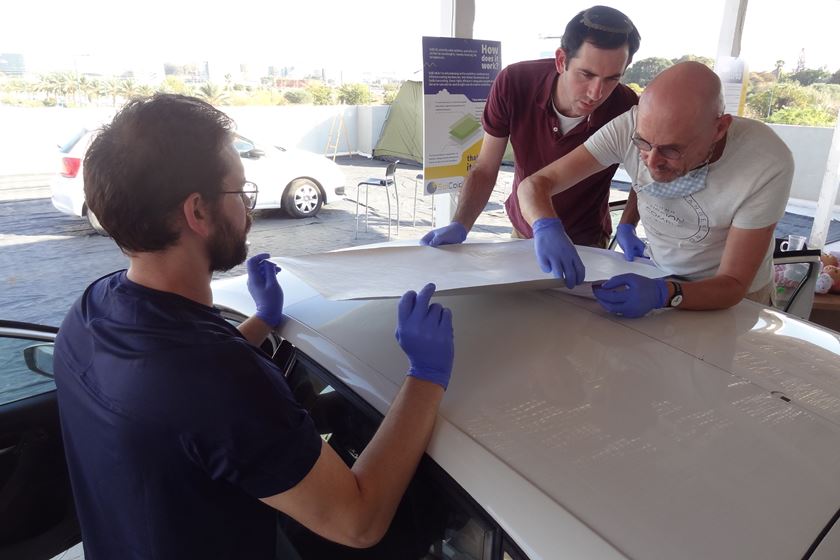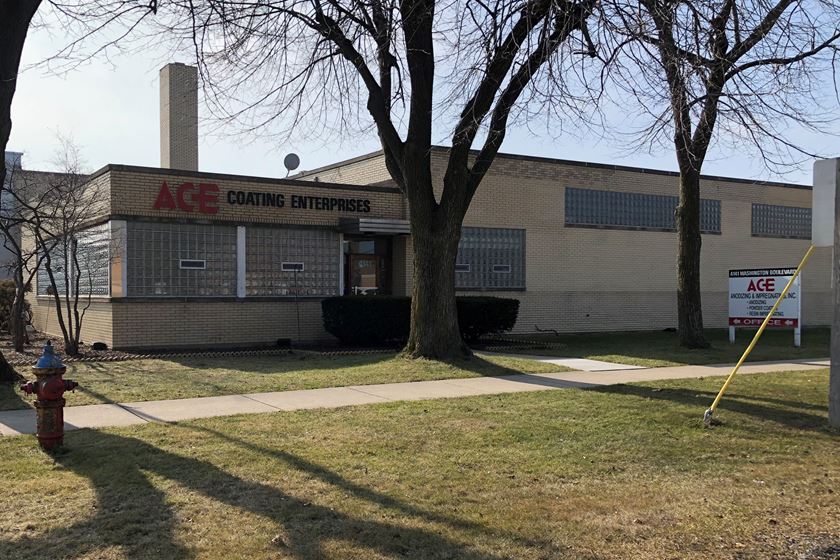Of Jazz Musicians, Energy Bars, Welders and Employee Empowerment
Letting your team members step up creates value, fosters pride.
#workforcedevelopment #energy
It is interesting how life has a way of teaching us the right lesson at exactly the right moment.
Had you asked me during my freshman year of high school what vocation I would elect I would have told you that I wanted to be a jazz musician. That’s right, long before business school, before sitting for the CPA exam, before following a career path in executive leadership, I dreamed of standing on stage, my 1944 Conn tenor saxophone strapped around my neck, mesmerizing a delighted audience as I basked in the warm flood of theater lights.
In those days, I played in a small jazz band and we weren’t half bad. We played gigs around Milwaukee, the most memorable one for me being a performance on the main stage of our hometown’s annual music festival. Four of the six members of that band went on to become accomplished professional musicians.
But not me, thanks to a trusted family friend who encouraged me to pursue an interest in business and keep music as a hobby. And so I did, and never looked back.
Interesting, is it not, how life has a way of teaching us the right lesson at exactly the right moment?
Like when my friend Doug MacRae, president of DuBois Chemicals’ Industrial Division, knowing of my passion for competitive cycling, loaned me his copy of Clif Bar & Co. founder Gary Erickson’s autobiographical book Raising the Bar (Jossey-Bass, 2004). It’s a great read, spinning a tale of how Erickson was inspired to create his line of energy bars during a 175-mile ride and came to a point where he just couldn’t force down the last of the six bars he had brought along for the trip.
The book speaks to the importance of maintaining one’s own identity, of being vulnerable in leadership and of following what Erickson refers to as white roads, a metaphor that likens the journey of business to his adventure of taking the less travelled roads and trails while on a bike trip through Lucerne, Switzerland. In essence, he makes the point that running a business is about the journey, not the destination.
But while the book included some great stories about thrilling bike rides, lessons in life and entrepreneurship, the most poignant pages took me back to my days as a jazz musician.
Erickson, a talented musician in his own right, pays homage to American jazz musician and trumpeter Miles Davis and his ability to hold a note for a long time, and then pause for four counts of silence, forcing other musicians to fill the space he left.
Writes Erickson, “Entrepreneurs can learn a lot from Miles and from the music of silence and space. I want to lead and also step aside, creating space within the company for other people to take solos and for the background musicians to create.” That sounds great, but can that really be done in a business?
Little did I know the question would be answered for me a few weeks after I finished the book.
Interesting, is it not, how life has a way of teaching us the right lesson at exactly the right moment?
Not long after finishing Raising the Bar I had a conversation with Mike Weller, the president of ITW’s Miller Electric Manufacturing Co., the iconic global manufacturer of electrical arc welding and cutting equipment. I had met Weller earlier in the year, fortunate enough to share the stage with him at a regional leadership seminar.
Intrigued by his philosophies on the topics of prioritization and leadership, I followed up with Weller to chat more, finding myself fascinated by how his views on employee empowerment provided a great practical playbook for letting our team members take solos, letting them fill the silence and the space left when we give them room, and enabling them to flourish in the process.
“Sometimes,” Weller observed, “we have only 10 or 15 people pulling the rope in leadership roles when we could have hundreds if not thousands of people pulling with us. When companies look for productivity, profitability and throughput, too often we overlook the greatest resources we have; listening to and involving our people.”
“The people we employ want to be engaged in the business, to actively contribute. They have ideas that come from their familiarization with our processes,” he continued. “It’s a question of whether we listen to them and give them a voice in the organization.”
But giving our people the opportunity to fill the silence and space left when we let them takes concerted effort and discipline. Weller believes that empowerment requires a different style of management and managers who are willing to let go.
“As you change your approach, you need to change your organization. ROI on these efforts are something that all companies should be thinking about. If we provide training on team engagement and problem solving, our people will take their expertise to a new level,” he said.
Weller went on to explain that the impact on his organization of this style of leadership has been significant.
“It helps people feel good about themselves, control their own destiny, and when they see their ideas come to fruition, they are very proud.”
In the midst of a major project that consumed a considerable amount of my time–leaving less of it for day-to-day business leadership and requiring me to let go and trust my team to tend to the details and make their own decisions–Weller’s advice could not have come at a better time.
Interesting, is it not, how life has a way of teaching us the right lesson at exactly the right moment?
Mike Weller, president of Miller Electric Manufacturing Co., contributed to this article.
RELATED CONTENT
-
Japanese Automotive Supply Chain Reliance on Plating Job Shops
The relevance of electroplaters in Japan’s automotive industry is more important than ever.
-
Reinvigorating the Workforce
Do education and outreach hold the key to solving manufacturing’s workforce problem?
-
40 Under 40: Class of 2023
Products Finishing's 40 under 40 program recognizes nominated individuals driving the surface industry forward. Meet the class of 2023.
















